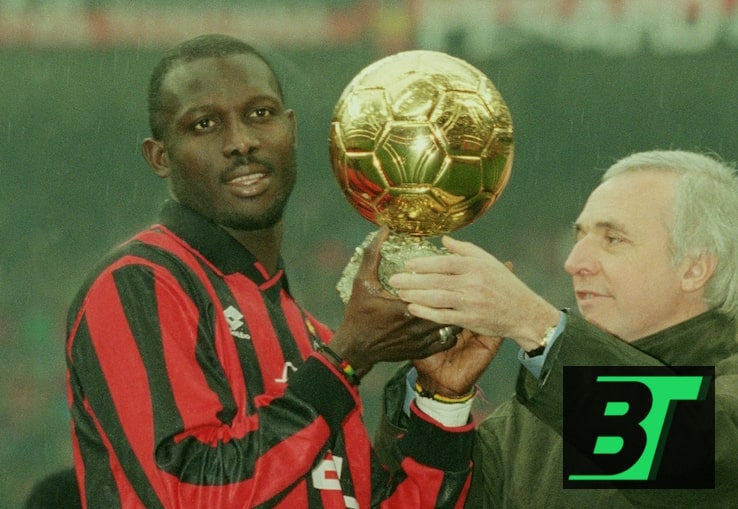
Discover the story of George Weah, the Liberian legend who became Africa only Ballon d'Or winner and later the president of his country
George Weah was born in 1966 in Monrovia, Liberia. Growing up in a poor neighborhood, he faced challenges that would have discouraged many. Yet his love for football pushed him forward. Playing barefoot in the streets of Clara Town, he developed the speed, power, and determination that would later define his career. Local clubs gave him a platform to shine, and by his late teens he was one of the most exciting prospects in Liberia.
Weah’s breakthrough came when he joined Tonnerre Yaoundé in Cameroon. His impressive performances caught the eye of Arsène Wenger, who signed him for AS Monaco in 1988. Under Wenger’s guidance, Weah refined his natural ability and became one of Ligue 1’s most dangerous strikers. His success at Monaco opened the door to a move to Paris Saint-Germain, where he established himself as one of the top forwards in Europe, winning trophies and scoring memorable goals in the Champions League.
In 1995, Weah transferred to AC Milan, joining a club with a rich tradition and a competitive Serie A environment. It was in Italy that he reached his peak, winning league titles and delivering extraordinary performances. His famous solo goal against Verona, where he ran from his own penalty box to score, remains one of the most iconic moments in football history. That same year, he became the first and only African player to win the Ballon d’Or, a groundbreaking achievement that put him in the spotlight worldwide.
Weah’s success was more than personal triumph; it symbolized the potential of African footballers to compete and succeed at the very highest levels. His victory was celebrated across Africa as a moment of collective pride. In discussions about football, his name became synonymous with ambition and inspiration. Today, even when fans search for insights, comparisons, or even platforms that connect global audiences to the game, Weah’s story is often cited as an example of how far football can take someone who refuses to give up on their dream.
Unlike many stars who moved abroad and distanced themselves from their home countries, Weah remained deeply connected to Liberia. He played for the national team despite limited resources and personally funded travel, training, and equipment. Although Liberia never qualified for the World Cup during his playing career, his efforts elevated the nation’s football profile and inspired young athletes across the region.
After retiring from football, Weah entered politics in Liberia. His journey was not easy, but he gradually built support and eventually won the presidency in 2017. As president, he shifted his focus to education, infrastructure, and rebuilding a nation still recovering from years of conflict. His rise from the slums of Monrovia to the highest office in Liberia is one of the most remarkable journeys in modern history, blending sporting greatness with civic responsibility.
George Weah’s life is an extraordinary example of resilience, excellence, and service. On the football pitch, he was a trailblazer who broke barriers for African players. Off the pitch, he transformed into a statesman dedicated to his country. His legacy continues to resonate with football fans, aspiring athletes, and leaders worldwide. Few figures have left such a wide-reaching impact, making Weah not just a football legend but also a symbol of hope and perseverance.